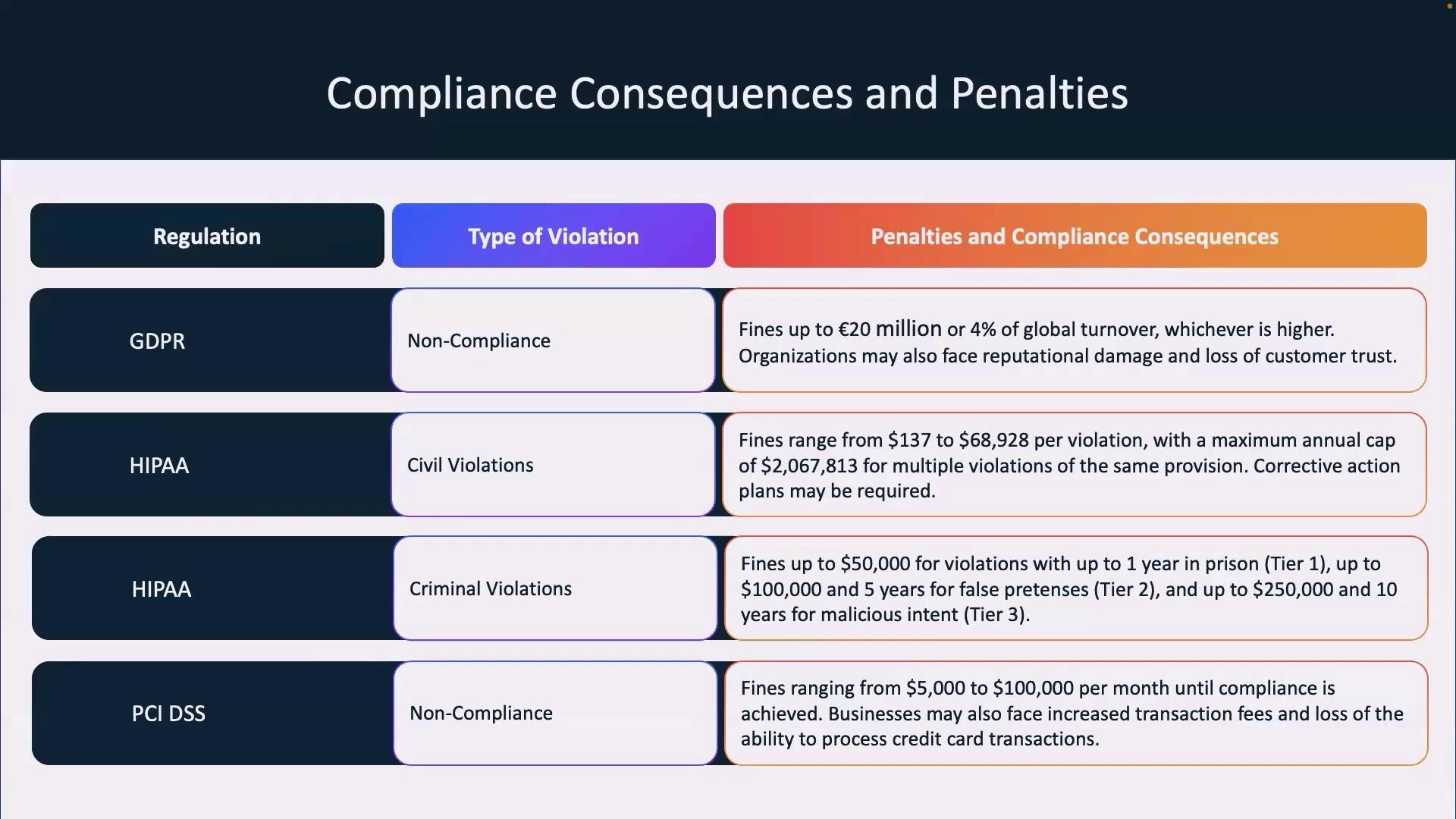Fundamentals of MLOps
Data Security and Governance
Compliance Summary
Welcome to this article. In this lesson, we provide a concise overview of three critical compliance areas: GDPR, HIPAA, and PCI. We examine various types of violations, the penalties imposed, and the overall consequences of non-compliance.
Overview
Compliance is evaluated based on several key factors:
- Regulation
- Type of Violation
- Penalties
- Compliance Consequences
Below, we review each regulation in detail.
GDPR Compliance
Failure to comply with GDPR can lead to fines proportional to an organization's total revenue. High-profile cases—such as those involving Meta and WhatsApp—demonstrate the severe penalties that can arise from breaches in data handling and privacy practices.
HIPAA Compliance
HIPAA categorizes violations into two distinct types:
- Civil Violations: These breaches result in monetary fines for organizations that do not adhere to the required guidelines.
- Criminal Violations: These offenses may incur not only fines but also imprisonment.
Note
Both civil and criminal violations under HIPAA are treated with utmost seriousness due to the sensitive nature of protected health information.
PCI Compliance
For organizations processing payments, PCI compliance is crucial. Non-compliance can result in the inability to process transactions through an application, which in turn can critically impact business operations. Strict adherence to PCI rules is essential to avoid these operational disruptions.
Compliance Consequences at a Glance
The table below summarizes the primary repercussions for non-compliance across the three regulations:
| Regulation | Consequences | Details |
|---|---|---|
| GDPR | Significant fines | Fines are calculated relative to the organization's total revenue. |
| HIPAA | Monetary fines and imprisonment | Violations include both civil and criminal penalties. |
| PCI | Loss of payment processing capabilities | Non-compliance may disable critical business functions. |

Final Thoughts
This overview is intended as a reminder for MLOps engineers to critically assess how data is managed and secured, ensuring robust data governance practices. By understanding these compliance requirements, organizations can better safeguard their operations and avoid severe penalties.
Note
Staying informed about regulatory changes and updating processes accordingly is essential for long-term compliance and operational success.
Thank you for reading, and we hope this summary enhances your understanding of the compliance landscape. For further reading, consider exploring the following resources:
Watch Video
Watch video content